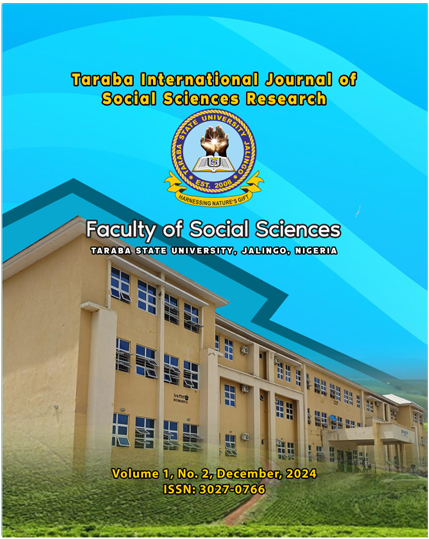THE ROLE OF PUBLIC OPINION AND PUBLIC PERCEPTION IN CONDUCT OF THE 2023 GENERAL ELECTIONS IN NIGERIA
Keywords:
Public Opinion, Public Perception, 2023 General Elections, NigeriaAbstract
This paper investigates public opinion and public perception regarding the 2023 General Elections in Nigeria, emphasizing the analysis of textual content, documents, and narrative prose to understand the prevailing sentiments surrounding the electoral process. The objectives are to analyze public opinion's influence on electoral behavior, assess perceptions of candidates and policies, and evaluate how these factors shaped voter decisions in the 2023 Nigerian general elections. This paper aims to dissect these complexities by analyzing relevant texts and narratives, ultimately contributing to a deeper understanding of the electoral landscape. By examining various sources, including media articles, political commentaries, and social media discourse, the research explores how public perceptions of candidates, political parties, and electoral integrity influences voter behavior and engagement. The study highlights key themes identified in the analysis, such as trust in the electoral system, concerns about transparency, and the impact of socio-political dynamics on public sentiment. It outlines how media narratives, both traditional and digital, shaped the discourse around the elections, framing candidates in ways that swayed public opinion. The paper delves into the role of misinformation and the challenges it poses to fostering an informed electorate. Furthermore, the analysis reveals a dichotomy in public perception, where optimism about democratic participation exists alongside skepticism about the integrity of the electoral process. This complexity underscores the need for effective communication by political actors and a commitment to transparency to rebuild public trust. Ultimately, the findings of this study illuminate the intricate relationship between public opinion and the electoral landscape in Nigeria, providing valuable insights into the factors that shape voter engagement and democratic participation. The paper contributes to a deeper understanding of the role of public perception in the ongoing evolution of Nigeria’s political environment.

